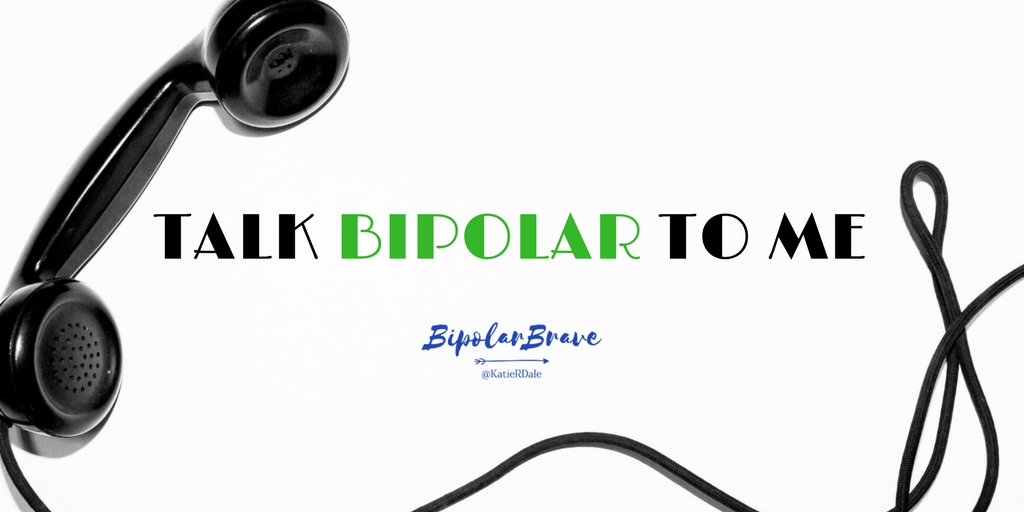What Goes Up Must Come Down
If you’re familiar with bipolar disorder, or major depressive disorder for that matter, being down in clinical depression has a deceptive effect on its subjects. With an imbalance of the brain’s chemistry, clinical depression is a state of mind where feelings seem to trump reason. Unfortunately, this can sound very much like a common caricature of the perceived spoiled millennial: the young kid that cries and feels bad because they didn’t get enough likes on their selfie, or whatever the deluded excuse for their feelings being hurt because of someone’s marginal opinion of them.
This may be an unpopular thing to say, but let me be clear – clinical depression is NOT the same thing as an overly-sensitive ego. And that isn’t really understood by the majority of people these days. It’s a sad day when we’re no longer shocked at the status quo to so easily claim mental illness when they simply haven’t matured enough to become well-adjusted adults. I think it may hurt someone to say it, but that’s reality today. However, I do believe those with clinical depression do need a way to properly approach and deal with their emotions and see that there is a way to endure and come through this state of mind.
Which is why I’m writing this post.
So here are a few suggestions on how to talk to your loved one during an episode of depression.
Talking With A Depressed Bipolar/Major Depressive
The depressed person with bipolar or major depressive disorder is in a state that they generally cannot change and get themselves out of by themselves. The assistance of medication and talk therapy can aid them in rising from rock bottom, but while you help them in their darkest place, keep these tips in mind.
- Listen. If they’re not sharing, but you know them well, ask them a question and give them time to answer. They may be looking for words to express themselves. It’s a frustrating thing to be depressed and in the dark with thoughts that may constantly berate their self-esteem, with an unending cycle of negative thinking. Give them some time to at least try to express their hurts, fears, perceived losses and feelings.
- Validate. The definition of validate is, “to demonstrate or support the truth or value of.” Notice that you would acknowledge the value of what the person says they feel, and while they may feel a certain way and it not be the truth of the situation, you still want to acknowledge their feelings and give them credit for voicing them. This is not the same thing as endorsing their feelings as truth, because feelings aren’t always truth, but they are indicators and reflectors of the situation the individual is in. When I was clinically depressed it was an indication that I was hurt, upset, and feeling rejected. While I was not really hurt for a justifiable reason (I took things too personally), or actually rejected (though I perceived I was), I needed someone to listen to how I felt and reassure me that I wasn’t alone and wasn’t completely off center. I needed someone to accept me for who I was, where I was at, and let me know it was okay to feel that way. I may not have felt that way because it was based in truth (my reality was skewed) or because the situation called for me to feel that way (I was sick, remember), but I still needed to feel validated for at least having those feelings.
- Remind. Once in a while, when these mental disorders sweep us off our logical stance and into the valley of the shadow, we need to be gently reminded that this is a temporary time. My favorite and most encouraging piece of advice I’ve received in this time is “This too shall pass.” Why? Because it will. It did for me and it does for those who are struggling within the depths of despair. My mom would also tell me: “The tough get going when the going gets tough.” I believe that we as humans are all capable of fighting our way to a clearing. If that means consulting a psychiatrist to find the right dosage of antidepressants to calibrate our brain chemistry, and going to talk therapy to reconsider our internal beliefs and worldview, there is a way out. When we’re in the deep dark nights of the soul, we easily forget this. There is a way out.
- Involve a professional. There are many hurtful and harmful behaviors that can follow a depressive state of mind. If you are concerned that this may be an issue, offer to call their primary care physician, psychiatrist, or therapist. Encourage them to talk to a professional and if they are considering suicidal ideation and intent, don’t leave them alone, and immediately contact one of the following resources:
Crisis Text Line – crisistextline.org – text CONNECT to 741741
Text trained counselors anything that’s on your mind, 24/7, confidential, nationwide
National Hopeline Network (800) SUICIDE (784-2433)
National Suicide Prevention Lifeline (800) 273-TALK (8255) Veterans Crisis Line – Select Option 1
National Youth Crisis Hotline (800) 442-HOPE (4673)
National Alliance on Mental Illness (NAMI) Helpline (800) 950-6264
I hope this helps you navigate the stormy weather of depression in your relationships with those who suffer from bipolar or major depressive disorder.
What has helped you walk someone else through a depressive state? Share your thoughts in the comments.

What do you think?